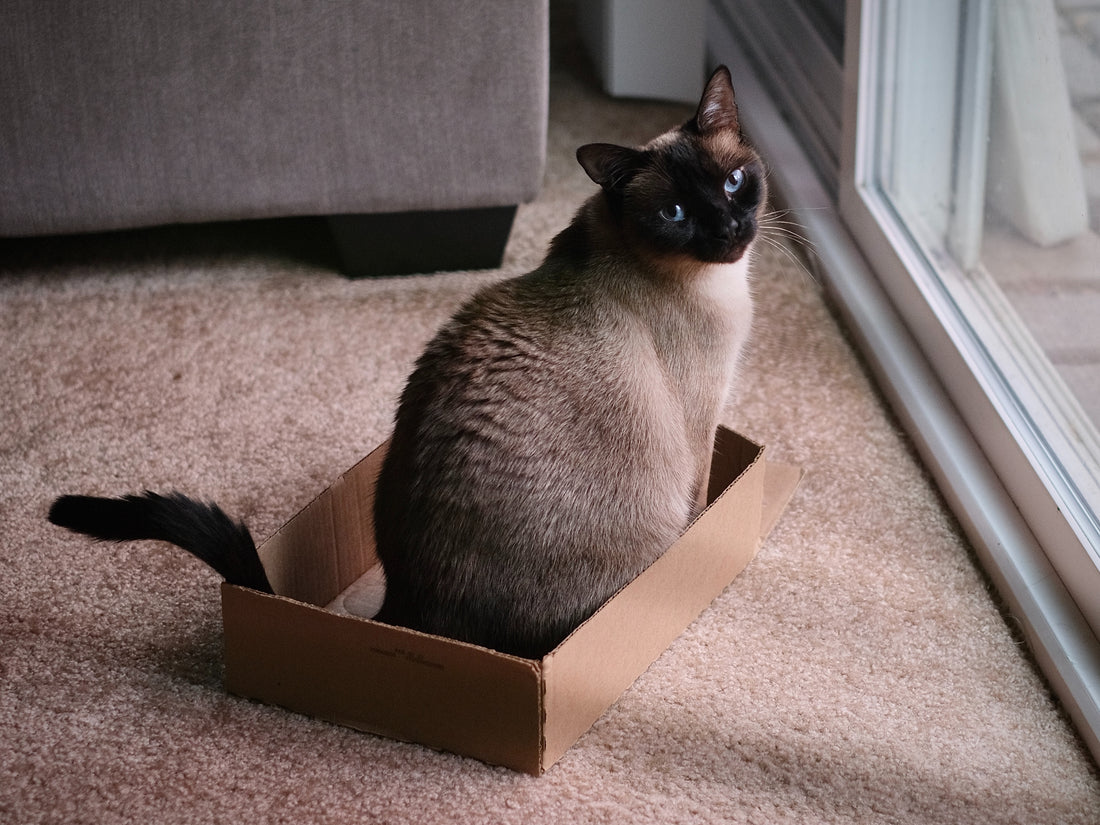A common question among cat owners is, “Why is my cat not using the litter box”?
The answer may be more complicated than you might expect, but understanding why your cat is not using the litter box is important, and the first step in solving the problem.
Common Reasons Cats Avoid Their Litter Box
If you're an experienced cat owner, you've likely dealt with the frustration of having a cat that refuses to use the litter box. From stress to medical issues, there can be a variety of reasons why cats will exhibit this behavior.
Health Issues
Cats may avoid their litter box if they are experiencing certain health issues that cause discomfort when peeing and/or pooping. These can include urinary tract infections, kidney, or bladder stones, along with other medical conditions.
Cleanliness
Cats are very clean animals and prefer a clean litter box. A dirty, smelly, unkept litter box can cause them to avoid it all together.
Behavioral Issues
Some cats may express behavioral issues in different ways, including boycotting their litter box. If they share a home with other cats, there may also be territorial disputes, including marking behaviors that can lead to a cat developing a fear of the litter box.
Stress and Anxiety
Cats can develop stress or anxiety due to changes in their environment, such as moving to a new home, the addition of a new pet, or ANY changes in routine. This stress can cause them to avoid the litter box. Addressing any underlying sources of stress and providing a calm and secure environment can help.

Litter Box Issues
- Litter Type: Yup! We all know cats can be finicky when it comes to food, well, the same applies to kitty litter! For whatever reason, cats may sometimes boycott their litter!
- Litter Box Location: The location of the litter box can influence whether a cat will use it. Cats prefer a quiet and private location where they feel safe. If the litter box is placed in a noisy or high-traffic area, the cat may be reluctant to use it. Try moving the litter box to a more secluded and calm area.
- Litter Box Size: The size of the litter box may also be a factor. Cats should have enough space to comfortably turn around and dig in the litter. If the litter box is too small, your cat may find it uncomfortable and choose not to use it. This is especially important for cats that are older, or those that have issues with mobility and may find climbing into a litter box with high sides difficult.
- Open vs Closed Litter Boxes: Some cats prefer open litter boxes, while others prefer covered ones.
If after addressing these issues you find that your cat continues to avoid using their litter box, we highly recommend consulting a veterinarian for advice.
Your vet will provide the appropriate testing needed to rule out any potential underlying health issues, and if necessary, refer you to a professional behaviorist for further guidance and assistance in resolving the problem.
Every Sale Supports a Shelter Pet. Learn More.
Created in Vermont. Learn More.
If you suspect your pet is sick, call your vet immediately. For health-related questions, always consult your veterinarian, as they have examined your pet, know the pet's health history, and can make the best recommendations for your pet.




